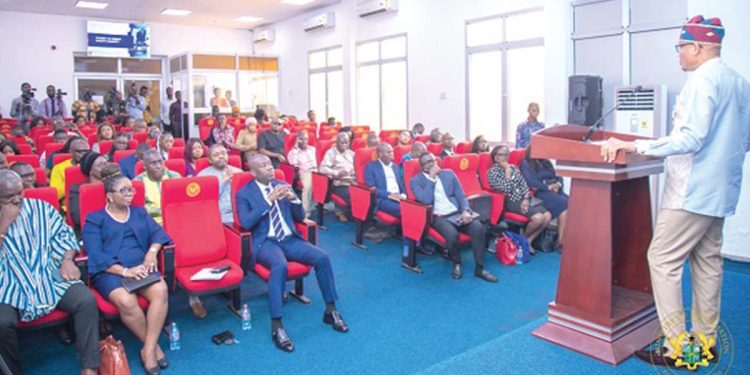The Chief Executive Officer of the National Petroleum Authority (NPA), Dr Mustapha Abdul-Hamid, has revealed that 36 oil marketing companies (OMCs) owe the NPA GH¢193m ($32m USD).
Of the total amount owed, approximately 80% is owed by eight out of the 36 companies. Some of the OMCs have also failed to renew their licenses for over two years, resulting in the revocation of their licenses.
The NPA is working in collaboration with the Economic and Organised Crime Office (EOCO) to retrieve all monies that were accrued from margins, levies, or taxes on fuels which had not been accounted for by the OMCs.
Dr Abdul-Hamid stated that “EOCO is at their heels and every dime will be retrieved”. Previously, the NPA had given the OMCs a payment plan to settle their indebtedness over a certain period of time.
However, with the introduction of an Enterprise Relational Data Management System (ERDMS), which allows product loadings to be done electronically, that leniency in payment has since been scrapped.
The CEO emphasized that the petroleum downstream is an important industry to the economy, as it contributes about GH¢60bn ($10bn USD) to the country’s GDP, representing 11% of the GDP.
Nonetheless, he expressed concern that the downstream was bedevilled with issues of illegal fuels (poor quality) and fraudulent unified petroleum price fund (UPPF) claims that were instituted to ensure people bought fuel at the same price across the country.
To deal with these challenges, the NPA has put in place security measures, including testing the wholesomeness of fuel at the pumps by personnel of its quality assurance directorate.
Dr Abdul-Hamid also revealed that the NPA had initiated the Gold4Oil program. The program seeks to provide consumers with lower fuel prices while dealing with the depreciation of the cedi.
Previously, the downstream petroleum sector required $400m USD monthly to import petroleum products, putting a lot of pressure on the cedi. The policy will last for a year, after which there will be a review to determine the way forward.
The NPA is in consultation with the association of OMCs to come up with criteria for the distribution of the next consignment of petroleum products under the program.
Per the criteria, the top 25 OMCs which distributed petrol and diesel in 2022 to not less than 45 retail outlets across the country would receive the products to ensure that the impact of the program was felt by consumers across the nation.
The country has so far received three cargoes under the program, comprising 41,000 metric tonnes (MT) of diesel in January. Another 40,000MT of diesel and 35,000MT of petrol have also arrived and were being discharged.
Dr Abdul-Hamid further said that the government was pursuing a vision to make the country a petroleum hub for which reason a Petroleum Hub Development Corporation Act had been passed by Parliament.







